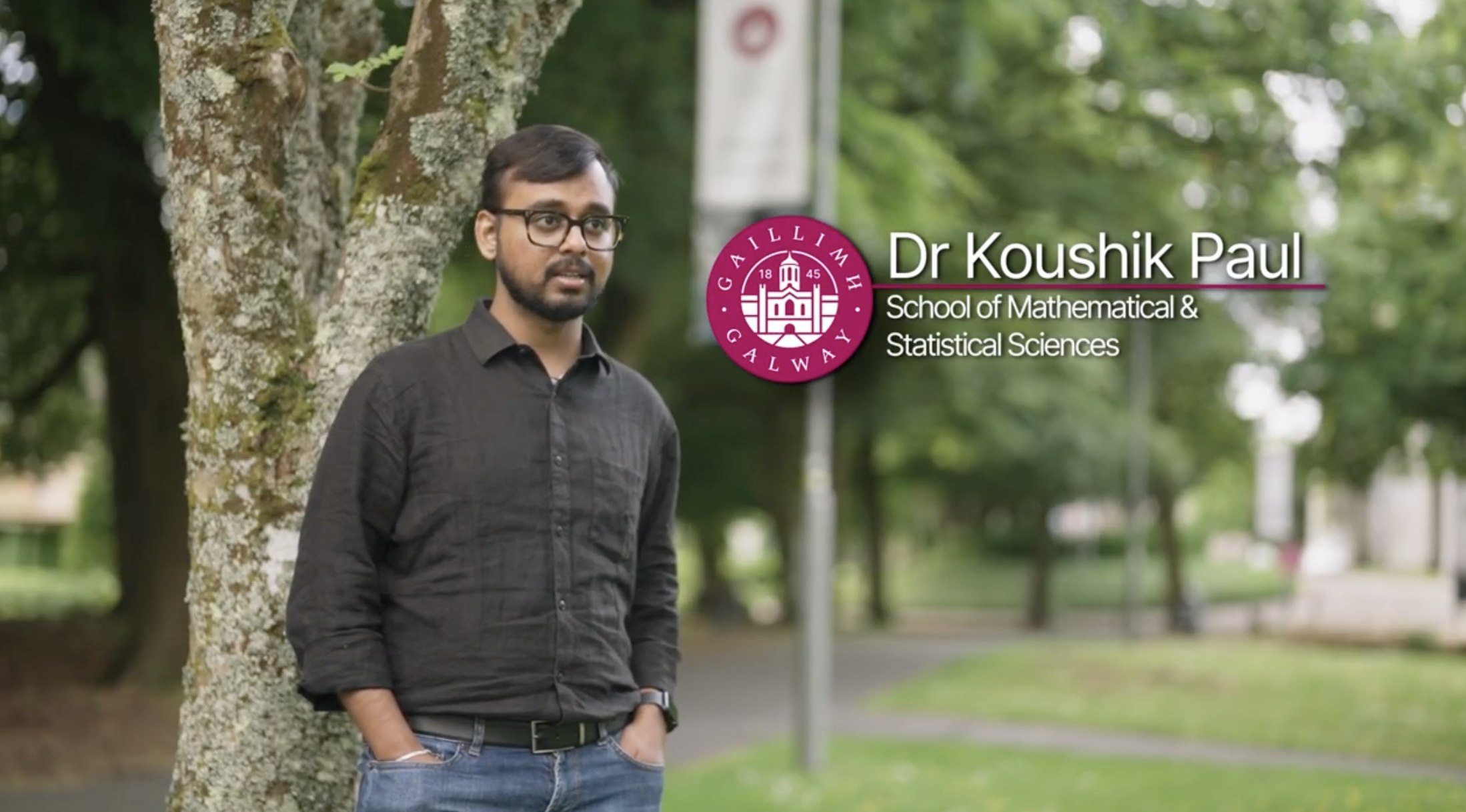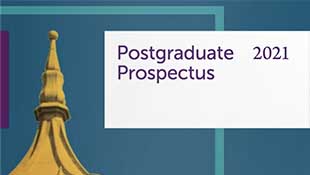-
Courses

Courses
Choosing a course is one of the most important decisions you'll ever make! View our courses and see what our students and lecturers have to say about the courses you are interested in at the links below.
-
University Life

University Life
Each year more than 4,000 choose University of Galway as their University of choice. Find out what life at University of Galway is all about here.
-
About University of Galway

About University of Galway
Since 1845, University of Galway has been sharing the highest quality teaching and research with Ireland and the world. Find out what makes our University so special – from our distinguished history to the latest news and campus developments.
-
Colleges & Schools

Colleges & Schools
University of Galway has earned international recognition as a research-led university with a commitment to top quality teaching across a range of key areas of expertise.
-
Research & Innovation

Research & Innovation
University of Galway’s vibrant research community take on some of the most pressing challenges of our times.
-
Business & Industry

Guiding Breakthrough Research at University of Galway
We explore and facilitate commercial opportunities for the research community at University of Galway, as well as facilitating industry partnership.
-
Alumni & Friends

Alumni & Friends
There are 128,000 University of Galway alumni worldwide. Stay connected to your alumni community! Join our social networks and update your details online.
-
Community Engagement

Community Engagement
At University of Galway, we believe that the best learning takes place when you apply what you learn in a real world context. That's why many of our courses include work placements or community projects.
Mathematics (MSc)
Course Overview
The MSc in Mathematics is a flexible one-year programme. The programme is primarily designed for two types of students:
- Students with a 4-year degree in Mathematics who want to upskill in mathematical areas related to employment e.g. in the communications and data industries or the financial sector.
- Students with a 3-year joint BA in Mathematics, or with degrees in cognate disciplines (Computing, Science, or Engineering) incorporating a significant mathematical component, who want to upskill in Mathematics before embarking on careers in teaching, academia, or the industry.
Scholarships available
Find out about our Postgraduate Scholarships here.
--
You may also be interested in one of our other Mathematics, Bioinformatics and Computational Genomics postgraduate programmes.
Applications and Selections
Applications are made online via the University of Galway Postgraduate Applications System.
Who Teaches this Course
Requirements and Assessment
Course (two-thirds weight) and minor dissertation (one-third weight).
Key Facts
Entry Requirements
Students should hold at least an upper Second-Class Honours degree (or equivalent) with a substantial mathematical component containing at least 30 ECTS of mathematical modules.
Additional Requirements
Recognition of Prior Learning (RPL)
Duration
1 year, full-time
Next start date
September 2025
A Level Grades ()
Average intake
20
QQI/FET FETAC Entry Routes
Closing Date
No set closing date. Offers made on a continuous basis.
NFQ level
Mode of study
ECTS weighting
90
Award
CAO
Course code
MSC-AL
Course Outline
The programme consists of three parts: core modules, modules in a chosen area of focus, and a project.
Students take 30 ECTS of core modules covering different areas of contemporary mathematics such as algebra, geometry and discrete mathematics. Students will learn to apply mathematical theories to tasks in data analysis, decision making, and data security. The core modules also provide an opportunity for students to acquire skills in widely-used software such as Python and R. 2024/2025, we plan to offer the following core modules:
- Geometric Foundations of Data Analysis I (Semester 1)
- Mathematics for Decision Making I (Semester 1)
- Algebraic Foundations of Quantum Computing (Semester 1)
- Geometric Foundations of Data Analysis II (Semester 2)
- Mathematics for Decision Making II (Semester 2)
- de Brún Centre Postgraduate Summer School (in May)
In addition to their core modules, students choose to focus on mathematical areas by selecting 30 ECTS of modules from a wide range of possible options. While students are free to select and combine individual modules according to their mathematical interests, they can also choose one of several recommended focus pathways. These pathways consist of collections of mathematically related modules. Topics of focus pathways include:
- Computing.
- Communication.
- Finance.
- Pure mathematics.
Finally, students gain deep and specialised knowledge of a topic by working on a 30 ECTS project supervised by a member of academic staff in their chosen focus area.
Students of this programme will be mentored by the Programme Director throughout the year. Students will receive advice on how to choose among different focus pathways and how to find a suitable project supervisor. They will also be alerted to relevant career opportunities.
MSC MATHEMATICS COURSE CURRICULUM INFORMATION
Why Choose This Course?
Career Opportunities
There is a strong demand for graduates with mathematical skills, and the ability to apply them, in financial institutions, business firms and semi-state bodies. Apart from receiving advanced mathematical training, graduates of this programme will have learnt to apply mathematical theories to tasks in areas such as data analysis, decision making, and data security. They will also be familiar with various types of widely-used mathematical software.
The School of Mathematics, Statistics and Applied Mathematics offers a lively environment for any student wishing to pursue advanced studies in mathematics. We have approximately 40 faculty members across four disciplines: Mathematics, Statistics, Applied Mathematics, and Bioinformatics.
We are well recognised within University of Galway as a very student-friendly School. Several of our members have been formally recognised for their teaching excellence.
Our faculty members are internationally recognised researchers. We hold regular seminars in which local and visiting researchers present their latest work, and we typically host two or three international conferences in various mathematical disciplines throughout the year
Who’s Suited to This Course
Learning Outcomes
Transferable Skills Employers Value
Work Placement
Study Abroad
Related Student Organisations
Course Fees
Fees: EU
Fees: Tuition
Fees: Student levy
Fees: Non EU
For 25/26 entrants, where the course duration is greater than 1 year, there is an inflationary increase approved of 3.4% per annum for continuing years fees.
Postgraduate students in receipt of a SUSI grant – please note an F4 grant is where SUSI will pay €4,000 towards your tuition (2025/26). You will be liable for the remainder of the total fee. A P1 grant is where SUSI will pay tuition up to a maximum of €6,270. SUSI will not cover the student levy of €140.
Note to non-EU students: learn about the 24-month Stayback Visa here.
Find out More
Dr Mark Howard
E: mark.howard@universityofgalway.ie
What Our Graduates Say

Koushik Paul | Graduate
I enrolled in the MSc in Mathematics programme at NUI Galway because of the versatility and comprehensiveness of the curriculum. The MSc in Mathematics gave me insight into different areas of mathematics while allowing me to specialise in my area of interest. Each student works on a master’s project under the guidance of a supervisor of their choice. This gives the student an opportunity to research and educate themselves to a very high academic level in their particular field of interest. Upon completion, students are fully equipped with a range of interpersonal and professional skills that will provide the foundations for successful careers in both research and the industry. The course was extremely beneficial to me, it enhanced my skills and developed the basis of my research career in the field of Algebra. Even though mathematics is considered to be a very theoretical field, it has a wide variety of applications, including data science, chemistry and astrophysics. The staff and faculty members in the school definitely played a crucial role in my success. They were extremely helpful, supportive, and friendly. It was an amazing experience, and I would highly recommend the course

















